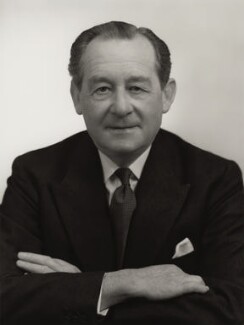Hubert Ashton facts for kids
Quick facts for kids
Hubert Ashton
|
|||||||||||||||||||||||||||||||||||||||
|---|---|---|---|---|---|---|---|---|---|---|---|---|---|---|---|---|---|---|---|---|---|---|---|---|---|---|---|---|---|---|---|---|---|---|---|---|---|---|---|

Ashton in May 1959.
|
|||||||||||||||||||||||||||||||||||||||
| Member of Parliament for Chelmsford |
|||||||||||||||||||||||||||||||||||||||
| In office 23 February 1950 – 25 September 1964 |
|||||||||||||||||||||||||||||||||||||||
| Preceded by | Ernest Millington | ||||||||||||||||||||||||||||||||||||||
| Succeeded by | Norman St John-Stevas | ||||||||||||||||||||||||||||||||||||||
| Personal details | |||||||||||||||||||||||||||||||||||||||
| Born |
Hubert Ashton
13 February 1898 Calcutta, Bengal |
||||||||||||||||||||||||||||||||||||||
| Died | 17 June 1979 (aged 81) Wealdside, Essex, England |
||||||||||||||||||||||||||||||||||||||
| Political party | Conservative | ||||||||||||||||||||||||||||||||||||||
| Spouse |
Dorothy Gaitskell
(m. 1927) |
||||||||||||||||||||||||||||||||||||||
|
|||||||||||||||||||||||||||||||||||||||
Sir Hubert Ashton (born February 13, 1898 – died June 17, 1979) was a talented English sportsman and politician. He was known for playing both cricket and football at a high level. Later in life, he became a Member of Parliament, serving in the UK government.
Contents
Life of Sir Hubert Ashton
Early Years and Military Service
Hubert Ashton was born in Calcutta, India, on February 13, 1898. His mother was Victoria Alexandrina Inglis. Her father, Sir John Eardley Wilmot Inglis, was a famous British commander.
Ashton attended Winchester College, a well-known school. In 1917, during World War I, he joined the Royal Field Artillery as an officer. He served until the war ended in 1918. For his bravery, he received the Military Cross.
His award citation mentioned his courage:
For conspicuous gallantry and skill in leading a section of guns into a forward position near Trones Wood on 27th August, 1918, where, under heavy shell and machine-gun fire, he succeeded in destroying an enemy strong point, thereby greatly facilitating the infantry advance.
After the war, he went to Trinity College, Cambridge.
Cricket Career Highlights
Ashton was a skilled right-handed batsman. He played for the strong Cambridge University Cricket Club teams right after World War I. During school breaks, he also played for Essex County Cricket Club. In both 1921 and 1922, he scored over 1,000 runs. By the end of 1922, his average was over 46 runs per game.
One of his most famous moments was in 1921. He played for an amateur team against the powerful Australian cricket team. His team was struggling, but Ashton scored 75 runs quickly. This helped his team win the match. Because of this impressive performance, he was named a Wisden Cricketer of the Year in 1922.
Ashton's three brothers, Gilbert, Percy, and Claude, also played first-class cricket. Gilbert, Hubert, and Claude even captained Cambridge University in three years in a row (1921-1923).
After 1922, Ashton's cricket appearances became less frequent. This was because he joined the Burmah Oil Company. He played for India and Burma in 1926–27. He also played a few more games for Essex and some other first-class matches until 1939.
Football Achievements
Besides cricket, Ashton was also a talented footballer. He always played as an amateur. His football career started with the Corinthians. He then played for West Bromwich Albion in the 1919–20 season.
In May 1925, he made his only appearance in the Football League. This was for Bristol Rovers against Reading. He joined Clapton Orient in August 1926. He played five games for them during the 1926–27 season. He then joined Gillingham in May 1927. Soon after, he decided to focus more on his cricket career.
Transition to Politics and Public Service
After his sports career, Ashton moved into other fields. First, he worked in cricket management. He became the president of Essex County Cricket Club in 1941. Then, he entered national politics in the UK.
In 1943, he served as High Sheriff of Essex. This is an old and important role in a county. He was later elected as a Conservative Member of Parliament (MP). He represented the Chelmsford area. He won this seat in the 1950 general election. He continued to hold the seat in three more elections. He retired from politics in 1964.
In 1953, he helped create a radio show for the BBC called Sporting Fanfare. In 1959, he was made a Knight Commander of the Order of the British Empire (KBE). This was for his work in politics and public service. After this, he was known as Sir Hubert Ashton. He also became the president of the Marylebone Cricket Club (MCC) in 1960–61. Sir Hubert Ashton passed away in South Weald, Essex, on June 17, 1979.
Family Life
In 1927, Hubert Ashton married Dorothy Gaitskell. She was the sister of Hugh Gaitskell, a well-known politician. Hubert and Dorothy had two sons and two daughters.
 | Emma Amos |
 | Edward Mitchell Bannister |
 | Larry D. Alexander |
 | Ernie Barnes |

